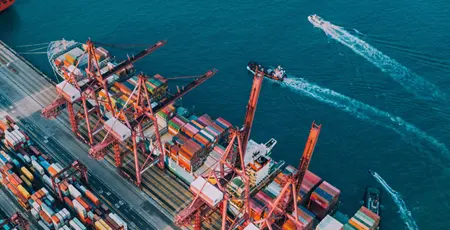The Benefits of Net Zero
We need to remind ourselves of the huge benefits of net zero, says Jonatan Pinkse.
The transition to net zero is an opportunity for businesses to improve productivity, generate new jobs, and create the markets of the future, but this is not guaranteed.
While the prospects are promising, many sectors have not yet reached the tipping point where making the transition is the obvious move.
Indeed, most sectors have been slow in taking advantage of the business opportunities of net zero and fossil fuels remains the dominant energy source. Achieving net zero still requires a strategic reorientation of major sectors of the economy and a significant acceleration of investment and innovation to reduce dependency on fossil fuels.
Companies must also obtain new knowledge to decide which low-carbon technologies to use, and new competences to fit them into existing activities. In some sectors go-to low-carbon solutions have become evident, such as solar PV and wind power for electricity generation, electric vehicles for personal mobility, and heat pumps for heating houses. But for many other sectors the low-carbon solution of choice is not yet so obvious.
Government role
Companies are expecting governments to set a clear direction. While the market is the best way to help scale up and diffuse commercially viable low-carbon technologies, the government has a role to play in protecting such emerging technologies until they reach maturity. Due to the risk of investing in the ‘wrong’ green technology, companies expect the government to de-risk their investments through appropriate policy support.
Such support is imperative because deploying low-carbon technologies at scale involves a system transition. Companies cannot make the transition alone, they need a well-functioning infrastructure, including an upgraded and expanded electric grid, and the buy-in of customers, suppliers, governments, and society.
Net zero benefits
The benefits of making the net zero transition are manifold for businesses and the UK government alike, but they need continually stressing:
- The market for green products and services is growing year on year and customers are increasingly looking for greener alternatives and are willing to pay a price premium.
- Companies investing in net zero have access to financial resources from ESG funds but also attract mainstream investors who don’t want to be left with stranded fossil-fuel-oriented assets.
- Global investment is increasingly going into the green economy and multinationals expect the government to create favourable conditions for them to invest in the UK. For example, the government recently offered Tata Steel £500 million to support it in making the switch to green steel in Port Talbot, Wales.
- Investing in net zero creates new jobs which tend to require more skilled labour and are therefore generally better paid. However, there are currently not enough people with the relevant skills so considerable public investment is needed in vocational training and further education to create a green workforce.
- Low-carbon products and services rely on complementary technologies such as a charging infrastructure for EVs, installation and maintenance services for solar panels and wind farms, and batteries for energy storage. These technologies create new markets themselves which will generate new business opportunities and jobs.
- Investing in low-carbon technologies will push companies to rethink their business model and reimagine how they can create and capture value.
Leading ESG and Sustainability
Discover the challenges that businesses face and explore the transition to a net-zero and biodiverse economy.
Opportunities
There are multiple opportunities from the net zero transition yet many companies still need to be convinced of the viability of the business case in their sector. As such, government will play a pivotal role in supporting sectors across the economy to reach the tipping point beyond which investments in low-carbon technologies will generate increasing returns.
In some industries the low-carbon technology is there, but it is still not the default option — such as heat pumps. In other industries, such as heavy manufacturing, there is far more uncertainty about what the default low-carbon solution will be. The government will have to co-ordinate with the relevant actors and make a clear choice. Without a decisive government, companies delay making big commitments.
Currently, UK government policy is of a start-stop nature. The recent watering down of the UK’s net zero plans could put a halt on green investments in sectors such as housing construction and automotive, while relying on a carbon price as the only policy lever needed is short-sighted. There are many other bottlenecks such as an outdated electricity grid which is not fit for the massive electrification of the economy, dysfunctional regulatory frameworks such as planning systems that prevent the building of new infrastructure, and the delayed implementation of much-needed climate policies.
Multi-faceted
It is key for government to appreciate the multi-faceted nature of the net zero transition. No one policy intervention will bring about change. Rather, it is a combination of changing expectations of consumers, experience with the use of low-carbon technologies, a growing group of people working in the green economy, public pressure from social activists, and well-designed policies that together create the positive feedback loops that accelerate the transition.
*This is an abridged version of a chapter of The Productivity Agenda, a blueprint for how the UK can improve its productivity performance.
Go to productivity.ac.uk for more details.






